Christian Strack
Platform Engineering vs. DevOps Why not both?
#1about 2 minutes
The historical divide between developers and operators
Specialization in development and operations created departmental silos and friction, which hindered collaboration and efficiency.
#2about 3 minutes
Defining DevOps as a collaborative culture
DevOps is a culture, not a role, where everyone involved in a product works together to imagine, develop, deploy, and operate a system.
#3about 3 minutes
Shifting responsibilities left to developers
The "shift left" model requires developers to own their software in production, which provides a crucial feedback loop for improving the code.
#4about 1 minute
The evolving role of modern operations teams
Operations teams are shifting from managing servers to providing high-level services and abstractions through infrastructure as code.
#5about 3 minutes
Introducing platform engineering and its technical components
Platform engineering builds self-service capabilities through an internal developer platform (IDP) to reduce cognitive load and enable fast software delivery.
#6about 2 minutes
Platform engineering as a socio-technical discipline
Beyond technology, platform engineering is a socio-technical discipline focused on user-centric design and improving the overall developer experience.
#7about 2 minutes
The rise of platform engineering in the industry
Industry reports from Gartner and the State of DevOps show a strong trend toward adopting internal developer platforms in high-performing organizations.
#8about 6 minutes
Treating your internal platform as a product
Adopting a product mindset for your platform, with a focus on user needs and an open roadmap, is crucial for its success and adoption.
#9about 5 minutes
Using the CNCF platform engineering maturity model
The CNCF's maturity model helps assess your platform's current state across dimensions like investment and adoption to guide its evolution.
#10about 3 minutes
Common failure mode: The platform as a cost center
Platforms can fail if they are only seen as a cost center, so it's essential to measure and communicate their value to business leadership.
#11about 3 minutes
Common failure mode: Not taking users seriously
Building a platform based on assumptions or forcing its adoption without genuine user involvement and feedback will likely lead to failure.
#12about 3 minutes
Common failure mode: The jack-of-all-trades platform
A platform without a clear purpose and strategy can suffer from feature creep, so it's vital to focus on quality and a defined scope.
#13about 3 minutes
Common failure mode: A non-cross-functional platform team
A successful platform team must be cross-functional, including members with application development, operations, and product management skills.
#14about 1 minute
Key benefits of a successful platform engineering approach
Effective platform engineering improves developer experience and productivity, reduces silos, enforces standards, and makes technical debt manageable.
#15about 13 minutes
Q&A on platform engineering implementation and future
The discussion covers the future evolution of platforms, supporting scalability, clarifying team roles, and overcoming common implementation challenges.
Related jobs
Jobs that call for the skills explored in this talk.
ROSEN Technology and Research Center GmbH
Osnabrück, Germany
Senior
TypeScript
React
+3
VECTOR Informatik
Stuttgart, Germany
Senior
Kubernetes
Terraform
+1
Patronus Group
Berlin, Germany
Intermediate
Product Management
REST
+2
Matching moments

04:04 MIN
Platform engineering is more than just infrastructure
Platform Engineering untold truths: is just an infrastructure matter?
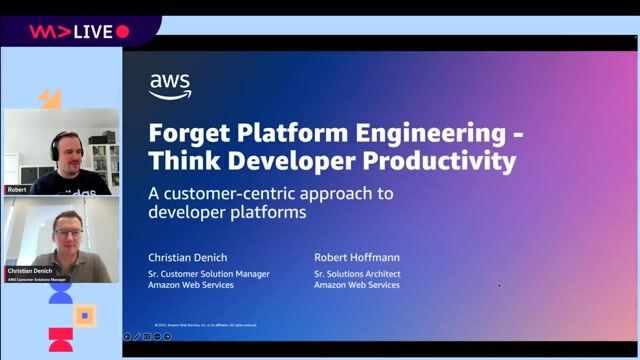
05:56 MIN
Shifting focus from platforms to developer productivity
Forget Developer Platforms, Think Developer Productivity!
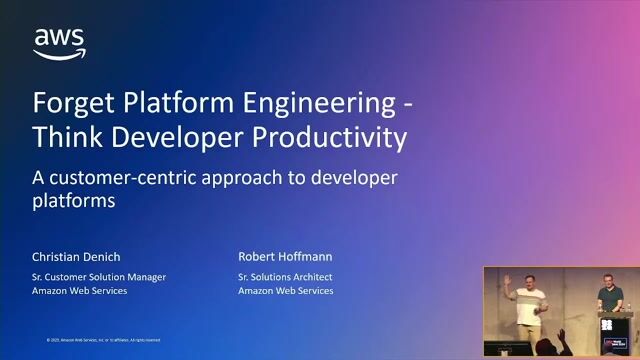
03:11 MIN
Why building great platform services is not enough
Forget Developer Platforms, Think Developer Productivity!
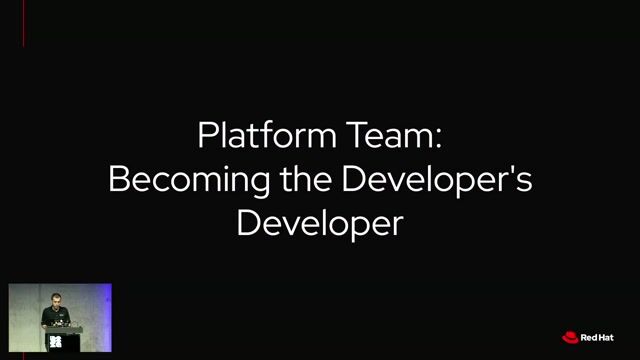
01:22 MIN
The evolving role of the platform engineering team
The internal developer platform and golden paths: Scaffolding for cloud-native development
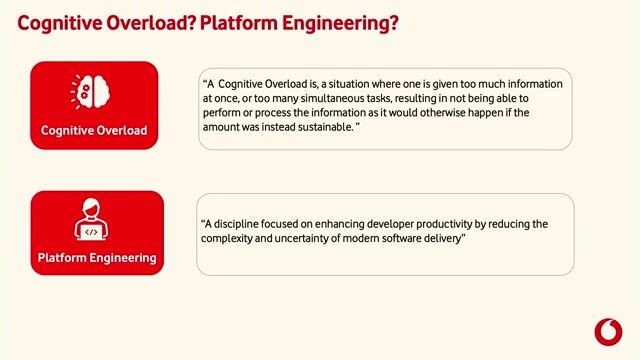
01:18 MIN
Defining cognitive overload and platform engineering
Reducing Cognitive Overload Through Platform Engineering
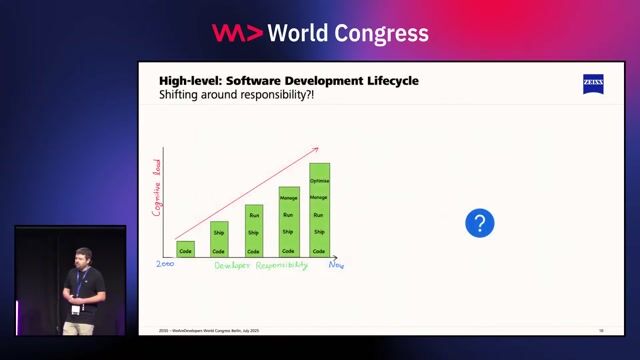
03:44 MIN
Adopting a platform engineering strategy for developer empowerment
Empowering Thousands of Developers: Our Journey to an Internal Developer Platform

01:13 MIN
Key takeaways for building a modern digital platform
Platform Engineering untold truths: is just an infrastructure matter?
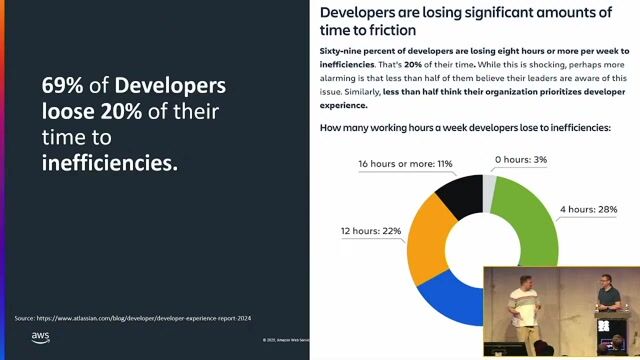
01:50 MIN
Common pitfalls of internal platform engineering
Forget Developer Platforms, Think Developer Productivity!
Featured Partners
Related Videos
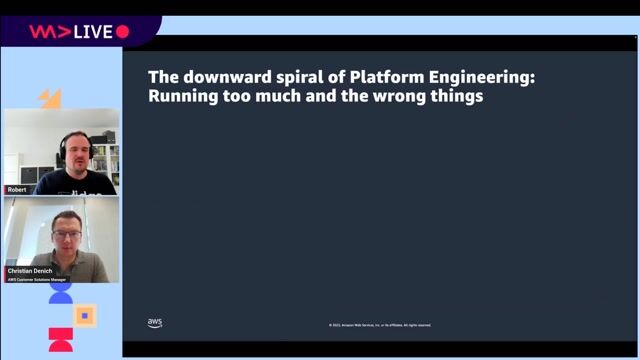 57:45
57:45Forget Developer Platforms, Think Developer Productivity!
Robert Hoffmann & Christian Denich
 26:16
26:16Platform Engineering untold truths: is just an infrastructure matter?
Graziano Casto
 50:23
50:23Retooling and refactoring - an investment in people.
Andrew Holway
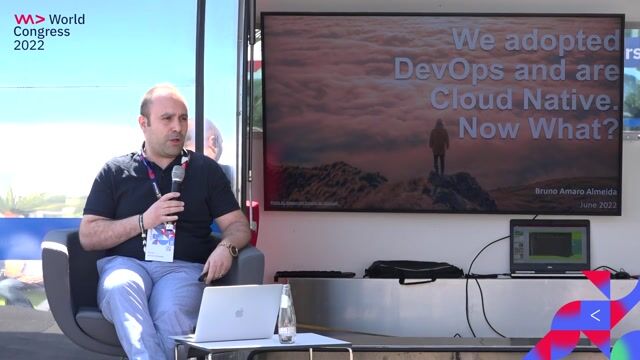 34:46
34:46We adopted DevOps and are Cloud-native, Now What?
Bruno Amaro Almeida
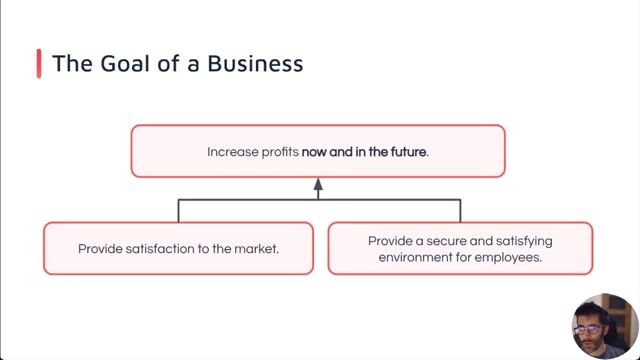 37:09
37:09Technology is Necessary, But Not Sufficient
Simon Copsey
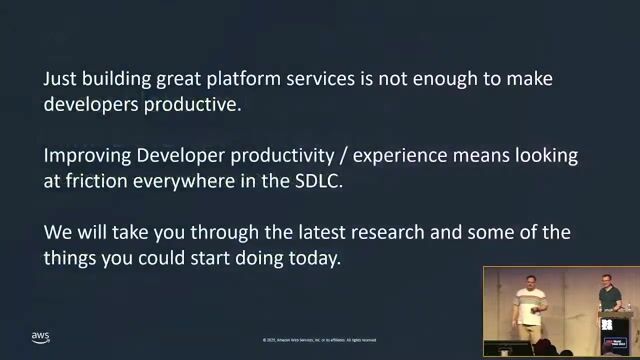 23:03
23:03Forget Developer Platforms, Think Developer Productivity!
Robert Hoffmann
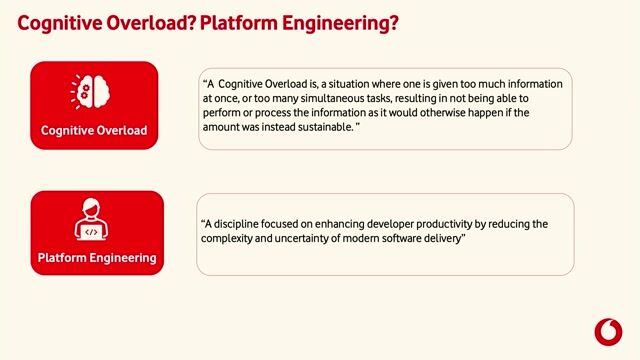 31:04
31:04Reducing Cognitive Overload Through Platform Engineering
Llywelyn Griffith-Swain
 19:04
19:04Overcoming bottlenecks of Platform Teams
Candost Dagdeviren
Related Articles
View all articles



From learning to earning
Jobs that call for the skills explored in this talk.

Qvest Digital AG
Bonn, Germany
Remote
Intermediate
Senior
Terraform
Continuous Integration
Cloud (AWS/Google/Azure)

Europa-Park GmbH & Co Mack KG
DevOps
Grafana
Terraform
Prometheus
Kubernetes

consider it GmbH
Hamburg, Germany
Rust
Azure
Linux
DevOps
Python
+5


CDmon
Malgrat de Mar, Spain
Remote
€30-54K
Junior
Go
API
Bash
+5


Toll-Collect GmbH
Berlin, Germany
DevOps
Openshift
Continuous Delivery

Client Server
Charing Cross, United Kingdom
Remote
£120K
Senior
DevOps
Terraform
Kubernetes
+2
